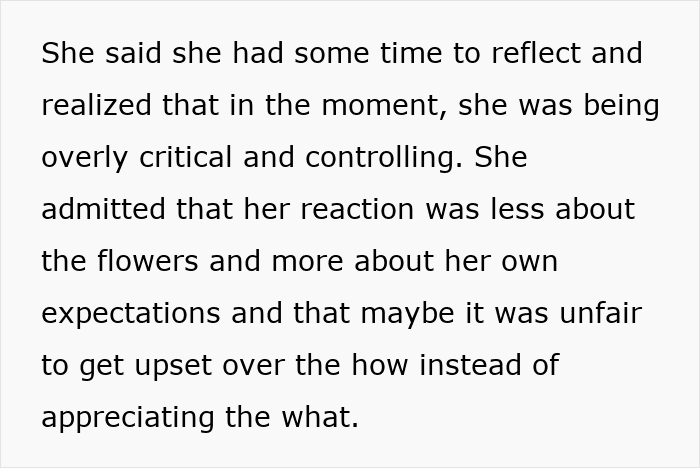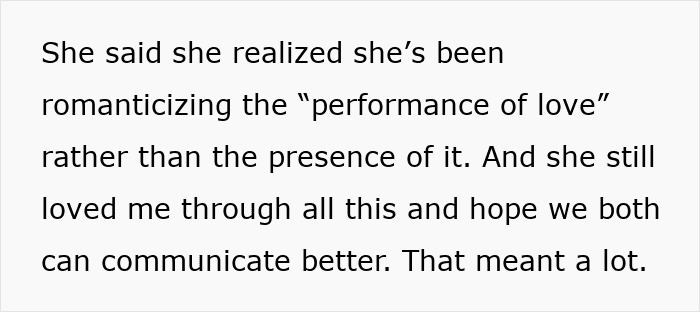According to the famous New York Times bestseller The 5 Love Languages: The Secret to Love that Lasts, people have different ways of expressing and receiving love, and recognizing these in your relationship can really strengthen it. But if a couple fails to do so, things can get pretty confusing and frustrating.
In a recent post on the subreddit r/relationship_advice, a guy shared how his wife felt hurt because he ordered flowers through an app instead of picking them out himself. This seemingly small issue quickly turned into a big fight, precisely because it highlighted how differently they express their feelings.
RELATED:Everyone shows love differently, so it really helps when couples get what matters to each other

But this man and his wife were not on the same page











Acts of service aren’t the most popular love language

In 2022, a YouGov survey found that many Americans are unfamiliar with the concept of the five love languages: only 30% said they’d heard of them. However, there was some variance among the participating groups: half of the women under age 45 were familiar with the languages, while women 45 and over, as well as men, were less likely to know what they were.
The researchers showed the respondents a description of the five love languages and asked them to rank the languages from the most preferred to the least. The love language chosen by most people was quality time: 38% rank this as their top love language. Women — those under 45 (41%) and those 45 and over (44%) — were especially likely to say quality time is their favorite way to receive love. It was followed by physical touch (24%) and words of affirmation (19%). Acts of service came in fourth (13%), beating only gift giving (7%).
But experts would like to see couples move beyond these concepts

However, licensed clinical psychologist Shannon Sauer-Zavala, Ph.D., pointed out that Chapman’s popular framework has its critics, mostly because of:
Lack of scientific backing: studies attempting to validate love languages have produced inconsistent results. There is no definitive evidence that matching love languages improves relationship satisfaction;Oversimplification of relationships: people’s emotional needs are complex and cannot be neatly divided into five categories;Misplaced focus: the notion that partners must “speak” each other’s love languages shifts the responsibility to the method of expression rather than the quality of emotional connection.
“While love languages aren’t backed by strong scientific evidence, they aren’t entirely useless. If anything, they offer a way to start conversations about how we give and receive love, which can be valuable,” said Sauer-Zavala, an Associate Professor of Psychology at the University of Kentucky (UK).
However, she would like people to move beyond this concept and said that what makes relationships thrive or fall apart are responsiveness, trust, and communication, which work in tandem and continuously.
Rather than relying on them as a relationship “fix,” consider asking yourself:
Are there certain ways I naturally show affection that my partner may not recognize as meaningful?Are there ways my partner expresses care that I may be overlooking?Am I being emotionally responsive beyond just love language preferences?
Instead of focusing on “speaking the right love language,” Sauer-Zavala suggested shifting your attention to how well you and your partner respond to each other’s emotional needs in general—that’s what truly makes the difference.
People have been sharing tons of reactions and advice


















The man eventually gave an update on the conflict with his wife












People still dragged him for the way it ended







